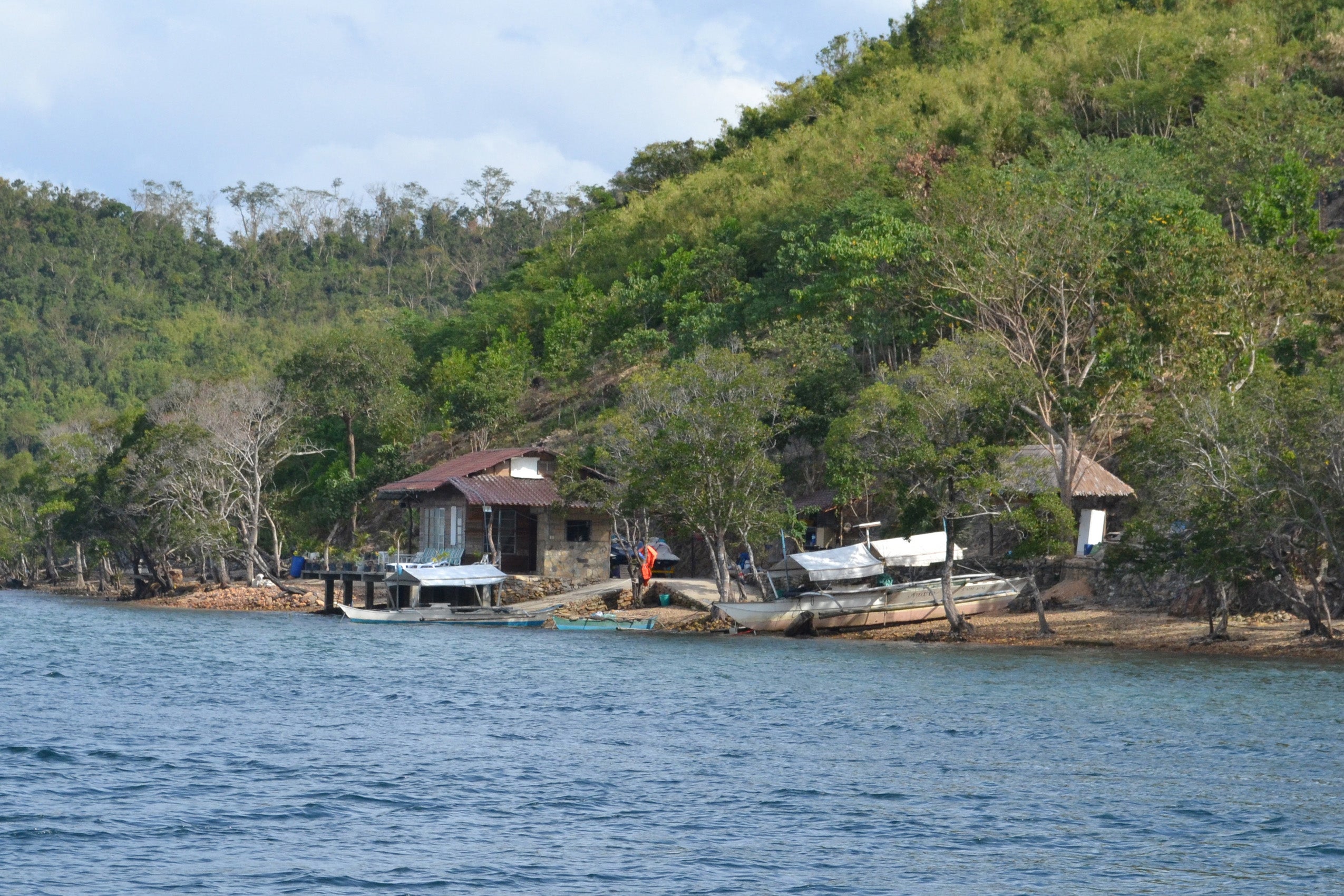Twelve Harvard Law School students who were selected as the 2015 Cravath International Fellows traveled to 11 countries for winter term clinical placements or independent research with an international, transnational, or comparative law focus. Below, three of those students are highlighted.
Sarah Weiner ’15
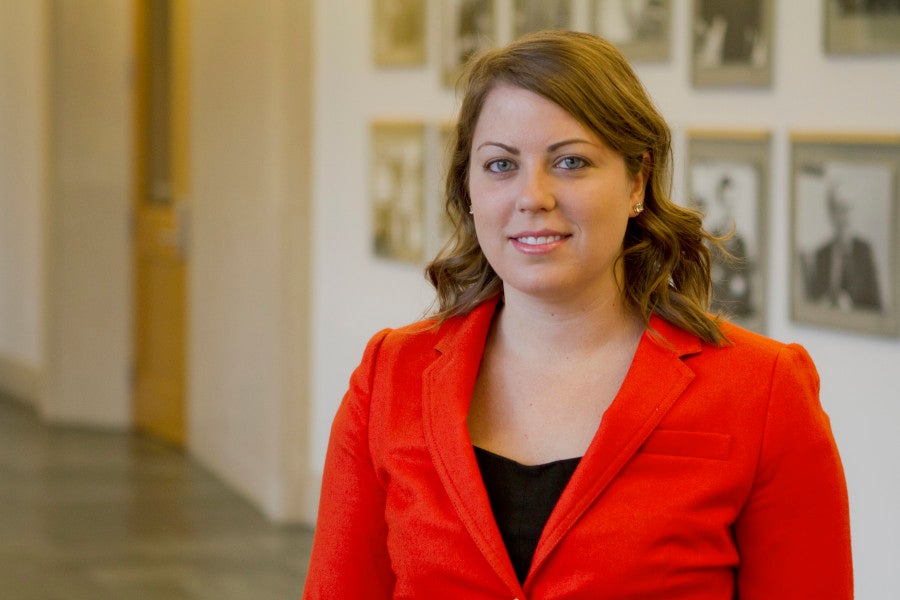
Sarah Weiner ’15 spent winter term in the Philippines researching the country’s legal strategies to promote climate change adaptation. As one of the most vulnerable countries in the world to the effects of climate change, the country passed legislation in 2009 that made it “an ideal case study.” The research project combined her long-standing interests in international development and environmental and energy law. Prior to law school, she worked on climate change adaptation initiatives at the village level as a Peace Corps volunteer in Tonga.
She joined the Law and International Development Society her first year at HLS, and is now serving as co-president. In her final year at HLS, she is focusing her coursework on environmental and energy law, including year-long participation in the Environmental Law and Policy Clinic. “In the fall I worked on legal strategies for climate change adaptation in Cambridge, and this semester I’m helping Boston in its efforts to promote microgrids—my winter term experience directly built on my fall clinical work and enabled me to bring a fresh perspective to my work in the spring.”
While in the Philippines, Weiner spent time in Metro Manila and traveled to areas in Palawan that were particularly hard-hit by 2013’s Typhoon Yolanda. She interviewed 30 actors in the climate change field, from national and local government officials to NGO workers and private sector professionals, to investigate the real-world differences between policy and practice.
She was particularly struck by the difference between the political atmosphere surrounding climate change in the U.S. and the Philippines. “In the Philippines there is simply no debate over whether it’s a real phenomenon and whether human activity is driving it. I heard over and over again that this is the result of the ‘lived experience of climate change.’ When they talk about this, they mean mostly the ‘supertyphoons’ that have struck the country in recent years, and it’s interesting to me why there hasn’t been similar national consensus on the issue in the wake of Hurricanes Katrina and Sandy in the U.S.“
Weiner is writing a paper based on her research, highlighting the successful legal strategies for climate change adaptation that she hopes will be lessons for other countries. “In the Philippines, they are seeking to include adaptation considerations in all levels of the law-building process. This is a massive undertaking and the successes and challenges of that experience can inform that process in other countries.”
In her next role, as a practicing lawyer, she hopes to focus on the financing of energy and infrastructure projects. “Discussions with policymakers in the Philippines illustrated the complexity and challenges of designing climate and energy policy, and solidified my desire to have an impact on this field. Spending time in a developing country reminded me of my passion for law and development and helped me clearly see how I can combine this passion with my interest in climate change and energy policy. In fact, I would love to utilize the connections I made during winter term to return to Manila in a few years!”
Wossen Ayele ’16
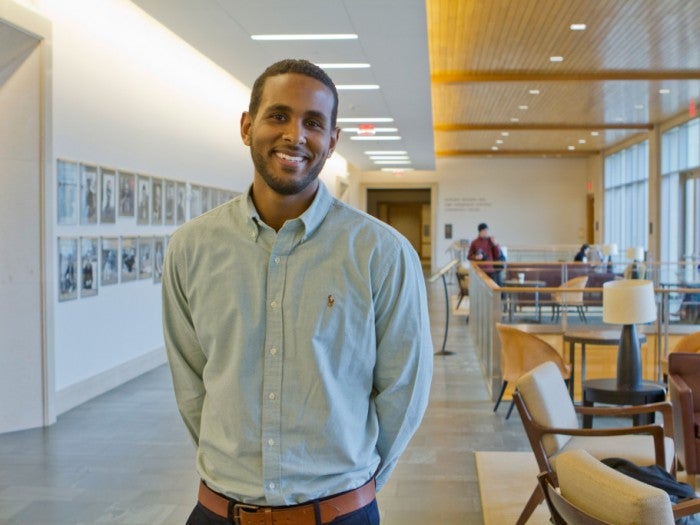
Wossen Ayele ’16 spent his winter term in Rwanda, conducting an independent clinical in the Strategic Investments Unit (SIU) of the Rwanda Development Board. The SIU negotiates with foreign investors on behalf of the Rwandan government. As a member of the SIU team, he helped to develop template energy project agreements and assess proposals from foreign investors.
Ayele’s interest in economic development and investment in East Africa began in college, when he spent a summer in Mombasa, Kenya, researching the effect of increased Western capital in the coast region of Kenya. After graduating, he worked in Ethiopia and Tanzania on energy and public sector projects that included evaluating the resilience of energy assets against climate shocks and improving access to water.
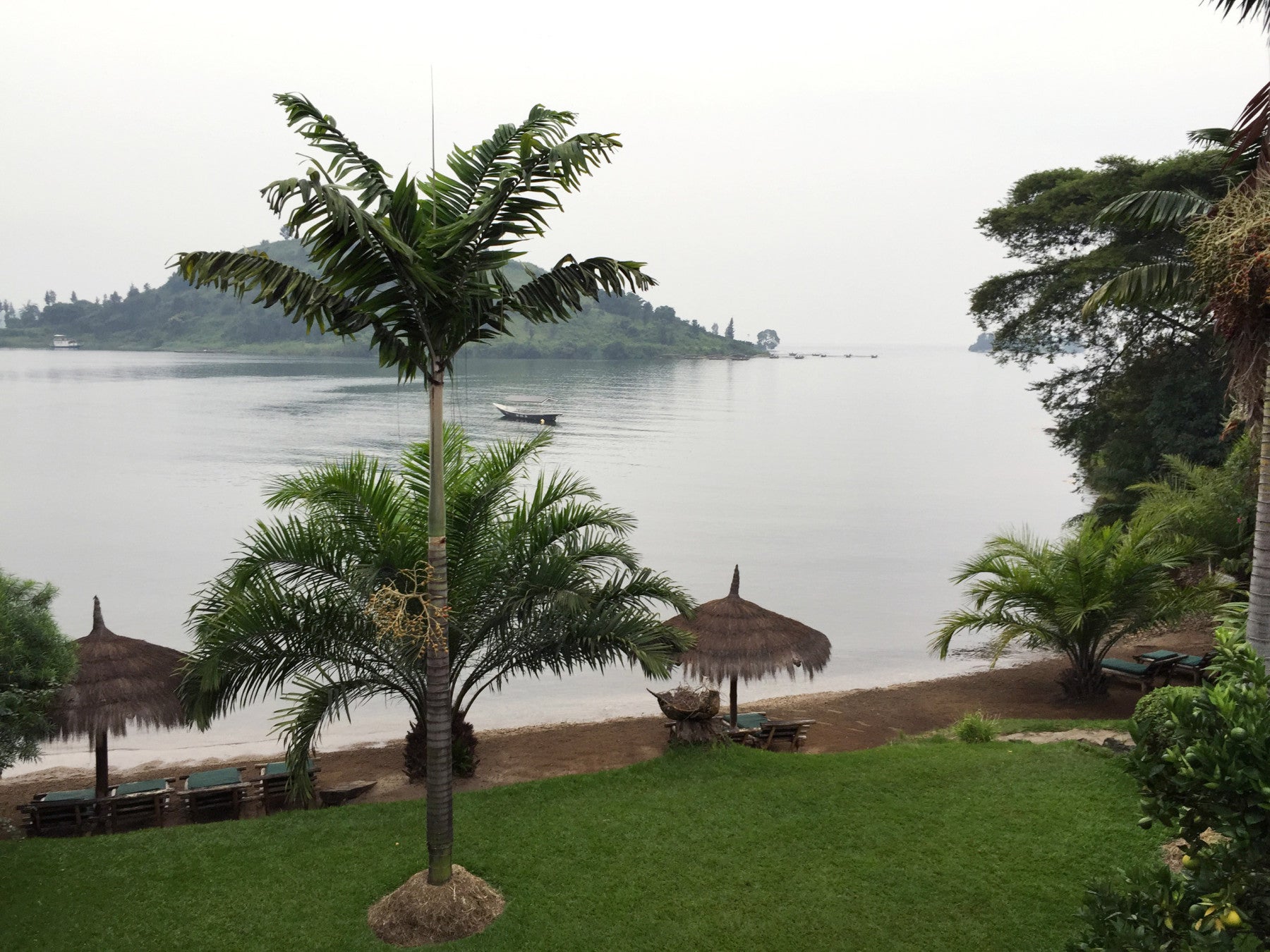
He began to explore clinical opportunities in East Africa as a 1L, while taking International Investment, Development, and the Law with Visiting Professor Jeswald Salacuse. “I chose Rwanda because I had heard from the development community that the country had made great progress,” he explained, “they have a very ambitious plan for economic development, so I wanted to understand how they were approaching foreign investments.” Ayele split his 1L summer between New York, working with a firm on energy project finance, and Dar es Salaam, Tanzania, researching the energy regulatory landscape and emerging hydrocarbon industry.

At the Rwanda Development Board, he worked closely with an SIU attorney on revising the organization’s current power purchase agreement documents, which “will hopefully assist the Rwandan government in getting fair terms as they work to provide electricity to their rural population.” He also helped to evaluate investment proposals and the terms of investment for approved projects. “This was a very rich experience because I saw not only how the process works from a micro perspective, but also how the SIU’s work operates as part of RDB’s larger strategy.”
Building on his winter term experience in Rwanda, Ayele is now writing an independent paper on risk allocation in public private partnerships in East Africa, investigating the role of legal professionals in public-private partnership investments.
After his final year at HLS, he is planning to join a law firm’s private equity practice group. “In the long term, I want to work in East Africa, either as an investor or in international law, where I can be involved in the development of the investment and trade regimes of the region. My fellowship gave me an extraordinary opportunity to see how international investment looks up close. I believe that getting experience practicing law in a corporate setting will be valuable regardless of where my career takes me.”
Carolina Kupferman ’15
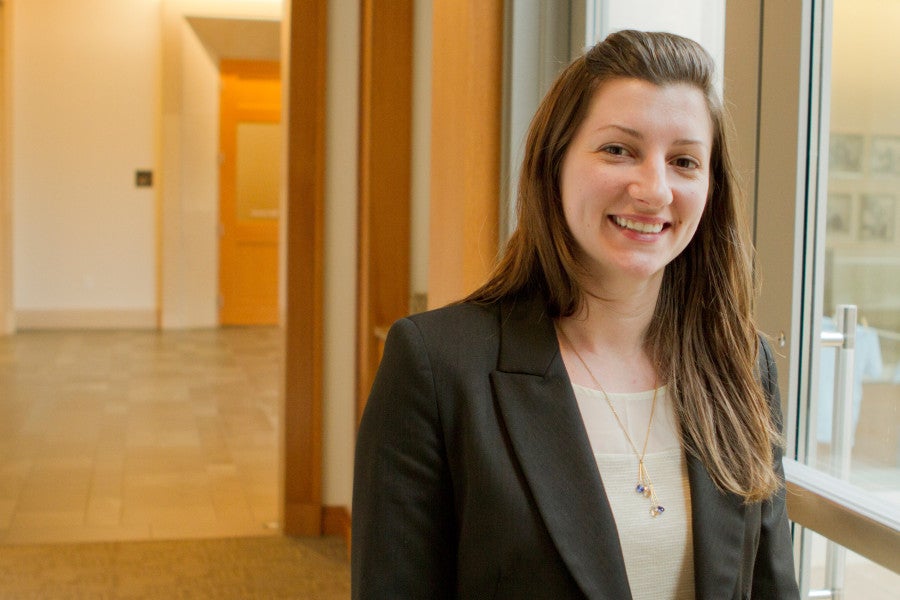
Carolina Kupferman ’15 traveled to Argentina to conduct comparative research on the country’s incorporation of international treaties into its constitution, and specifically how Argentina’s constitutional reform affected domestic labor laws as they apply to workplace discrimination. “My project combined the areas that have fascinated me; human rights, international law, and labor law. I’m working in the Harvard Legal Aid Bureau, representing clients with wage/benefits disputes, so this was also a chance to see the bigger panorama of workers’ rights-related law and its international side-effects.”
She has had significant personal experience both in Argentina and with labor laws. Born in Argentina, her family moved to the U.S. when she was two years old. Her entire extended family resides in Buenos Aires, and she grew up speaking Spanish at home. After graduating from Harvard College, Kupferman worked as an aerial performer, “I worked very long and tedious hours. The company did not treat its employees very well or pay for all the hours we worked; this is how I became interested in labor law.”
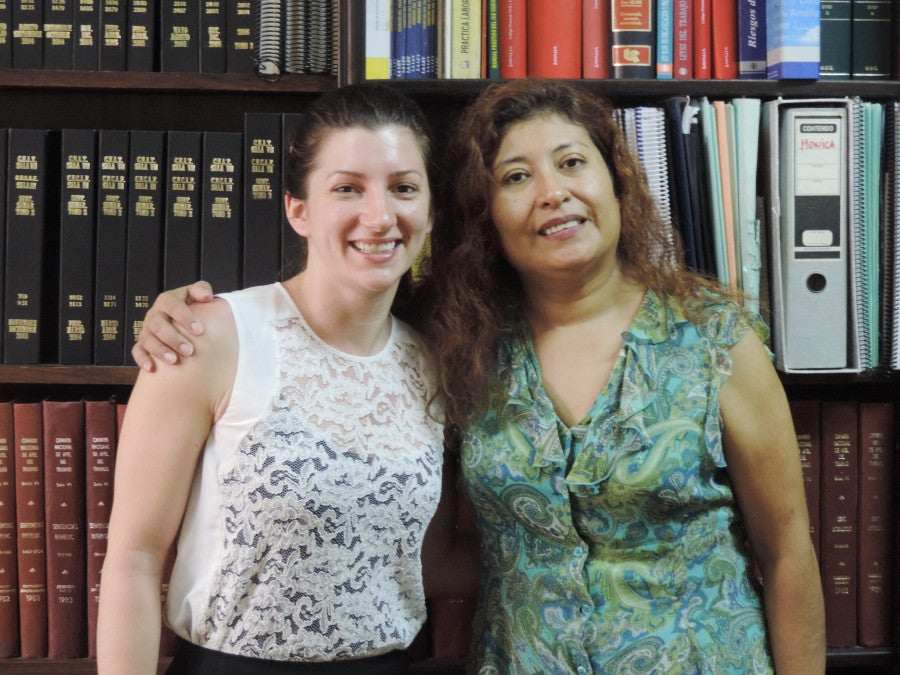
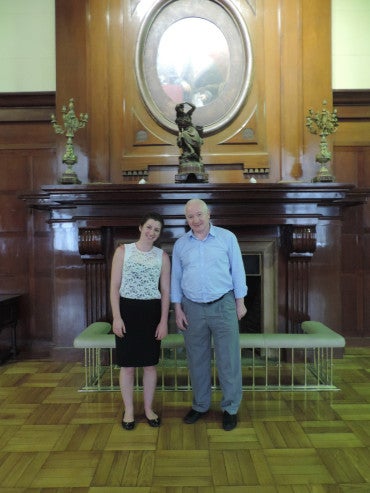
In 1994, 10 human-rights based international treaties were integrated into the Argentine constitution, placing them at the highest level of its government. Previous domestic statutes, including the right to work, became constitutionally-protected individual rights. This effectively eliminated the concept of at-will employment and granted domestic workers powerful new protections against discriminatory employment practices. “The right to work in Argentina is an essential human right—it’s the only place where you can’t be fired without cause,” explains Kupferman.
In Buenos Aires, she met with 20 experts in the fields of constitutional law and labor law, including appellate judges, government officials, lawyers, and professors, to better understand the “on the ground” effect of these greater workers’ rights. These interviews were an important complement to her growing understanding of U.S. labor laws. “I was especially surprised by the difference in how Argentine and U.S. legal experts base their case arguments. The concepts were astronomically different from what we’re taught in the U.S., so I would have to prod the experts to explain to me how the basic underlying concept was reached before they could explain the argument that stemmed from it.”
Concluding that both the U.S. and Argentina are able to protect against employment discrimination in very different ways, Kupferman states, “The U.S. has not integrated international treaties into its constitution, nor signed most of the treaties, and has ratified even fewer. Instead, international law is seen more as a guide. However, similar rights have been achieved by passing federal and state statutes specifically about discrimination protections. Ultimately, in the niche area of discrimination, the Argentine system and the U.S. system reach the same results in different ways.”
Upon graduation, Kupferman will join a firm in New York as a litigator, and hopes to focus on pro-bono civil rights cases.
The Cravath International Fellowships were created in 2007 by a group of partners and HLS alumni at Cravath, Swaine & Moore, led by Sam Butler ’54 and the late Robert Joffe ’67.
